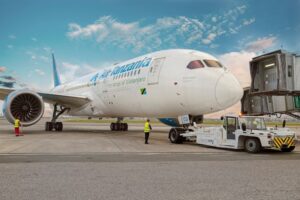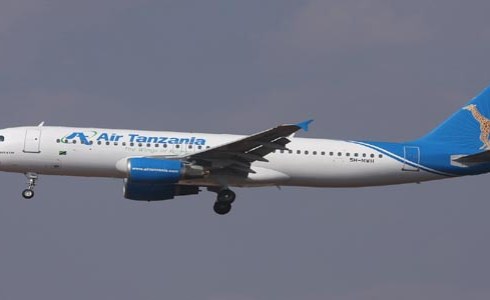
Dar es Salaam. Waziri wa Mambo ya Nje na Ushirikiano wa Afrika Mashariki, Mahmoud Thabit Kombo, amesema mataifa ya Afrika yanapaswa kuuangalia ushirikiano wa China na Tanzania kama mfano wa maendeleo, akibainisha kuwa unatoa taswira ya maono ya pamoja kwa ajili ya mabadiliko, ustawi, na kisasa.
Balozi Kombo amesema hayo jana, Januari 26, 2025 wakati wa hafla ya kusherehekea mwaka mpya wa Kichina, akisisitiza nafasi ya ushirikiano huo kama chachu ya maendeleo ya kikanda na ustawi wa pamoja.
Akizungumza katika sherehe hizo, Waziri Kombo ameeleza kuwa mwaka uliopita, 2024, ni wa kukumbukwa kwa kuwa umeacha alama na kumbukumbu nzuri katika historia ya ushirikiano wa kiuchumi na diplomasia ya Tanzania na China.
Amezitaja baadhi ya alama na kumbukumbu hizo kuwa ni pamoja na maadhimisho ya miaka 60 ya ushirikiano wa kidiplomasia na kukua kwa urari wa biashara baina ya Tanzania na China.
Aidha, Waziri Kombo ameelezea dhima ya Serikali ya Tanzania ya kuendelea kudumisha na kukuza zaidi ushirikiano katika maeneo mbalimbali, ikiwemo biashara na uwekezaji, utalii, viwanda, elimu, teknolojia, afya, na kilimo.
“Utulivu, uaminifu, na mafanikio ni msingi wa ushirikiano kati ya China na Tanzania. Rais Xi na Rais Samia wanashiriki maono yaliyojengwa juu ya maadili haya, yakiongoza mabadiliko, ustawi, na kisasa,” ameongeza.
Kwa upande wake, Balozi wa China nchini Tanzania, Chen Mingjian, naye amesisitiza uimara wa urafiki kati ya China, Tanzania, na Afrika, akisema kuwa mwaka huu unaashiria miaka 60 ya uhusiano wa kidiplomasia kati ya China na Tanzania.
Amebainisha kuwa China inaendelea kuwa mshirika mkubwa wa kibiashara wa Tanzania na chanzo kikuu cha uwekezaji, huku ushirikiano wa mataifa hayo mawili ukizaa matokeo makubwa.
“China inaendelea kushikilia nafasi yake kama mshirika mkubwa wa kibiashara wa Tanzania na chanzo cha uwekezaji, huku Tanzania ikitarajiwa kuwa mgeni wa heshima tena katika Maonyesho ya Kimataifa ya Uagizaji wa Bidhaa China. Ushirikiano wa manufaa kati ya nchi hizi mbili umeleta mafanikio ya kuvutia,” amesema.
Aidha, balozi huyo ameongeza kuwa kampuni zinazofadhiliwa na China nchini Tanzania yamepiga hatua kubwa na kuchangia katika Mpango wa Ukanda na Barabara. Walimu na wanafunzi wanaokuja Tanzania wameimarisha ushirikiano wa kitamaduni kati ya mataifa hayo.
“Katika mwaka mpya, China na Tanzania zitaendelea kushirikiana kwa karibu katika safari yetu kuelekea usasa. Ushirikiano wa kimkakati wa kina kati ya mataifa haya mawili unalenga kuleta manufaa makubwa kwa maendeleo ya nchi zote mbili na kuboresha ustawi wa wananchi, huku pia ukichangia kwa kiwango kikubwa katika ujenzi wa jamii yenye mustakabali wa pamoja kwa ajili ya binadamu wote,” amesema Mingjian.
Source: mwananchi.co.tz













